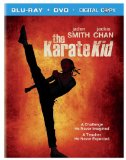 I watched the new Karate Kid movie last night (it’s pretty good.)
I watched the new Karate Kid movie last night (it’s pretty good.)
In it Jackie Chan tries to explain the Chinese meaning of 氣 chi. He tries to explain it in lots of oriental sounding ways like the flow of your internal energy.
And Jaden Smith comes out with “Oh, you might like the Force, in Star Wars!”
So there you go, the easiest way to explain chi, or “ki” as it is pronounced in Japanese – it’s the Force! And the symbols for Genki – 元気, as in Genki English, just mean the “origin of your Force” hence full of life, passionate and energetic.
So as Jaden Smith says “So you’re like Yoda, and your students are Jedi!”
May the ki be with you!



I’d like to comment on the proposed lyrics for the Thanksgiving song.Thanksgiving originated in the US and then Canada. As a Canadian I have celebrated Thanksgiving all my life. We never say ‘grateful’ concerning Thanksgiving. We always say THANKFUL. Thankful is also much more common in everyday spoken English ( what Genki is all about!) Also saying THANKFUL over and over again is great practice for native speakers who have trouble with the TH sound. If you keep the word grateful it’d be like changing Thanksgiving to ‘gratefulgiving’. I really couldn’t use the song in my classes if we have to sing grateful. It just doesn’t fit with the tradition of Thanksgiving. Hope my personal experience helps.. Ruthie BOUCHUT, ESL teacher, France
That does make a lot of sense! And fits with the discussion over on the forum. Actually I might try two versions as it shouldn’t be too hard!
Next question: fast or slow music?